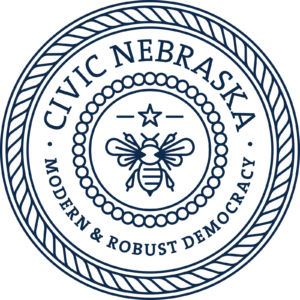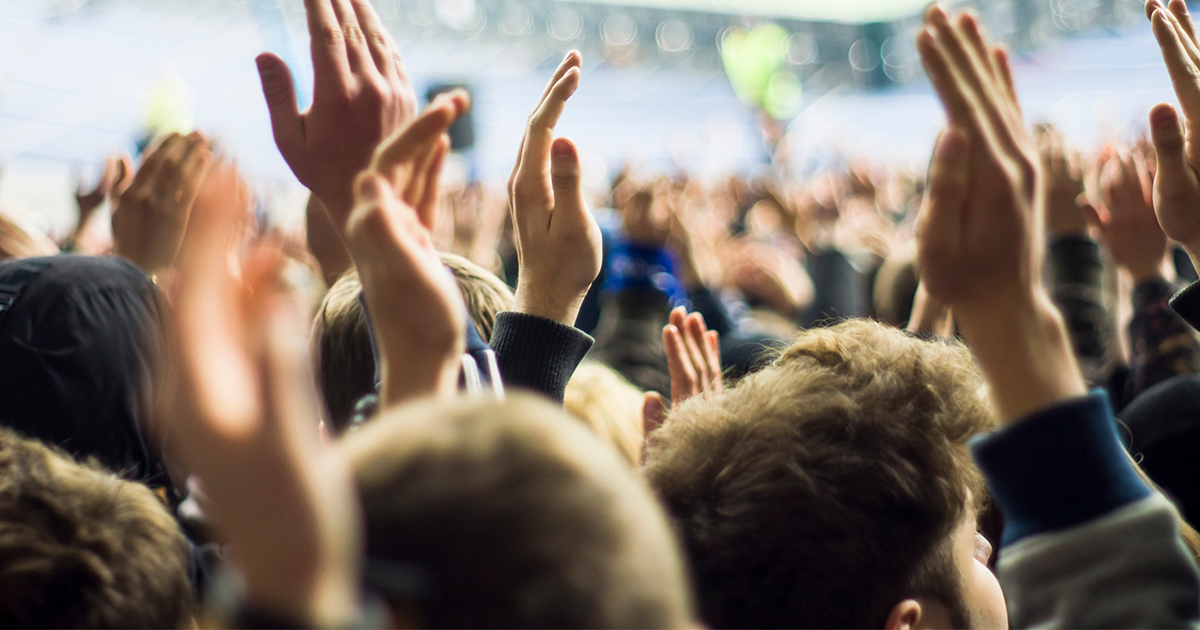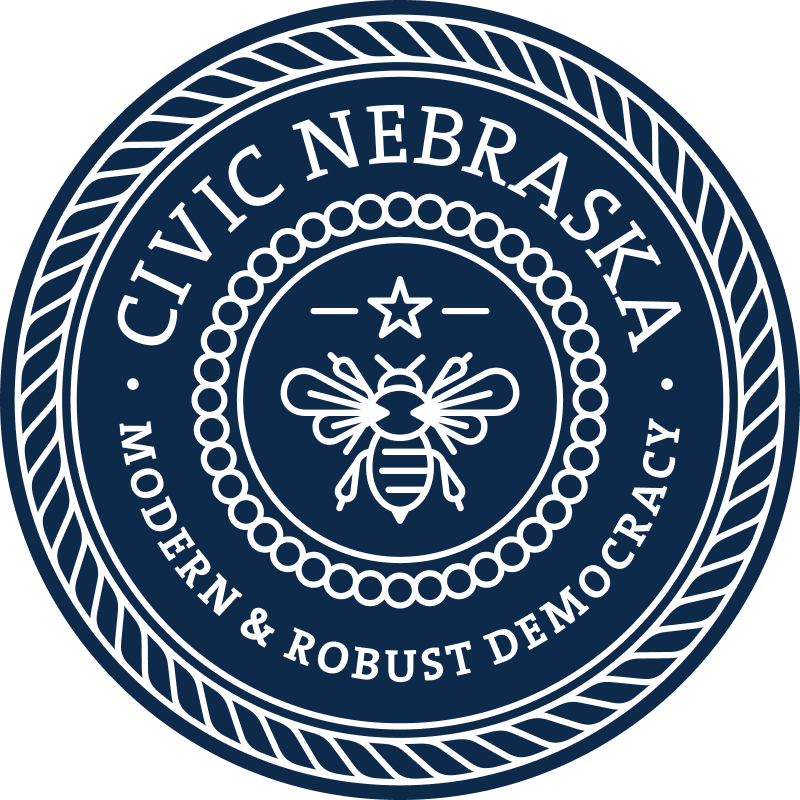“Show me what democracy looks like!”
“This is what democracy looks like!”
That familiar call-and-response chant is an activist staple, heard during times of urgency and action, at marches and campaign rallies, and from the mouths of Americans of all ages. It has endured, too, because even though it permeates our lives in America, democracy is not something you can necessarily see. Democracy is so ingrained and essential yet so abstract, intangible, and variable that it’s powerful when we look up in recognition when it’s happening around us.
As local, statewide, and national campaigns hone their final pitches to voters, there is plenty of talk about the health of U.S. democracy. Its preservation and protection rank at or near the top of nearly every American’s concerns in 2024, even as we struggle to picture a definition of democracy in our mind’s eye. That’s because democracy, as Americans define it, is far more than just voting. It encompasses a broad array of civic responsibilities and practices that ensure the health and vibrancy of society; democracy is a living, evolving process that requires active participation and commitment beyond the ballot box. It’s building a culture of shared responsibility and collective progress.
But where do those things happen, day-to-day? The flame of American democracy must remain burning in our hearts and minds; of course, that’s the most important place for it to live. But thinking about the physical spaces of our communities, are there places where we could look around and say, “This is what democracy looks like?”
Oh, yes — most definitely.
Let’s call them Robust Spaces. These spots are where the practice of democracy more easily becomes tangible – where diverse ideas, values, and identities converge and allow democracy to be a theoretical concept and a lived experience. Robust Spaces nurture connections between people, foster a more inclusive environment, and help democracy remain vibrant, resilient, and responsive to the needs of all its citizens. They’re crucial because they are places where Americans from different backgrounds and with varying beliefs can engage with one another on common ground.
Let’s look at a few of these spaces.
Libraries: a quiet sanctuary
Libraries have long been temples of knowledge. They offer access to information and resources regardless of background or beliefs. In these quiet havens, the goal is learning and exploration, allowing curious people to engage with materials that interest them without the interference of aggressive political discourse.
Whether someone is reading a novel, researching the history of a topic or place, or attending one of many community events hosted at their local library, this Robust Space provides a neutral ground with a focus on intellectual growth rather than ideological battles. The very essence of a library promotes a sense of shared humanity. It reminds us that pursuing knowledge is a universal endeavor transcending divisions.
Community gardens: cultivating unity
We love community gardens for this very reason—they are, quite literally, generative spaces where differences tend to be set aside in favor of collective action. In these green machines, Americans from diverse backgrounds come together to cultivate the land, growing food and flowers that benefit everyone involved. Gardening fosters cooperation and mutual respect as participants work together to achieve a common goal.
Community gardens are timeless and authentic. Our shared responsibility of tending to the garden, nurturing plants, and enjoying the fruits of our labor cultivates a strong sense of community, making political differences seem irrelevant in the face of the tangible results of their collaboration. Here, the focus is on growth — plants and relationships — rather than division.
Parks: common ground, literally
Whether it’s a city park bustling with families, joggers, and dog walkers or a vast national park offering breathtaking views and trails, our country’s natural environments are a respite from the tensions of daily life. The beauty of nature reminds us of our shared connection to the earth and each other, often prompting a deeper appreciation for what we have in common rather than what sets us apart.
In our parks, people gather for picnics, sports, and relaxation, enjoying the simple pleasures of life that are universally cherished. The open, inclusive atmosphere of parks allows for spontaneous interactions that might not occur in more politically charged environments, fostering a sense of unity and community that is increasingly rare today.
Volunteer work: a powerful unifier
Helping out at a food bank, building homes with Habitat for Humanity, becoming a Big Brother or Big Sister, or participating in a local cleanup effort—whatever the cause—volunteering brings together people who sincerely want to improve their community. Giving one’s time and energy to a cause greater than oneself creates a strong bond among volunteers, often overshadowing differences. In these moments, the focus is on the work being done and the lives being touched rather than on the beliefs of those involved.
This shared commitment to service and the betterment of the community builds a spirit of collaboration and goodwill – and shows that Americans can come together for the common good.
Public events: celebrating together
All work and no play makes … well, you know the rest. Festivals, concerts, and sporting events offer ample opportunity to connect beyond our comfort zones. Such gatherings gather Americans to celebrate culture, art, music, or a shared love of a sports team or competition. Such moments of collective enjoyment are potent reminders that there is more that unites us than divides us. In these Robust Spaces, the focus is on the joy of the moment, the beauty of the art, or the thrill of the game rather than on the views of those around us.
Religious spaces: an inclusive spirit
Churches, synagogues, mosques, and temples are literally sanctuaries, giving Americans a place to express a shared sense of faith and spirituality. While religion can be a source of division, many religious communities emphasize the importance of love, compassion, and service to others—values that can and should transcend political boundaries. As Robust Spaces, they focus on spiritual growth and connection and provide a way for those inclined to come together in worship and reflection—not to mention community service.
Robust Spaces remind us that despite our differences, we are all human. As such, we crave social connection, a sense of belonging, and the ability to improve our lot in life and our neighbors’. If you haven’t in a while, make an intentional effort to visit a library, park, or any Robust Space in your community – it’s a chance to connect on a deeper level, absent the manufactured walls of political division. Once those walls come down, there are far fewer opponents and many more fellow human beings with shared experiences, hopes, and democratic dreams.



